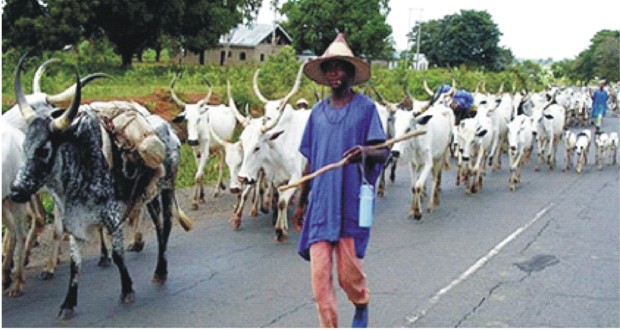Attacks from herders killed more Nigerians in 2018, compared to the number of deaths caused by Boko Haram in the country, according to 2019 Global Terrorism Index (GTI).
The GTI report released on Wednesday ranked Nigeria, for the fifth consecutive time, since 2015, as the third country with the worst impact from terrorism, globally.
Afghanistan, meanwhile, has overtaken Iraq to become number one on the list, while the latter moved down to the second position.
Syria, Pakistan, Somalia, and India are ranked fourth, fifth, sixth, and seventh respectively in the GTI report, while Yemen, Philippines, and Democratic Republic of the Congo are eighth, ninth, and 10th.
The report said terror-related incidents in Nigeria increased by 37 per cent, from 411 in 2017 to 562 in 2018 and also deaths from terrorism in the country rose to 2,040 in 2018, a 33 per cent increase.
“The increase was due to a substantial escalation of violence by ‘Fulani’ extremists, whilst Boko Haram recorded a decline in deaths from terrorism,” the report said.
Dispute over ownership and usage of land has remained the major cause of the violence conflict between Fulani herdsmen and farmers in Nigeria.
A concern was raised in the 2018 GTI report over the killings by herders. The report had warned that terrorism was shifting from Nigeria’s North-East region to the country’s Middle-Belt.
“Violence between Nigerian herders and farmers intensified in early 2018 with approximately 300,000 people fleeing their homes. The most recent escalation in violence follows increased militia attacks and implementation of new anti-grazing legislation,” the latest report said.
“In 2018, Fulani extremists were responsible for the majority of terror-related deaths in Nigeria at 1,158 fatalities. Terror-related deaths and incidents attributed to Fulani extremists increased by 261 and 308 per cent respectively from the prior year. Of 297 attacks by Fulani extremists, over 200 were armed assaults. Over 84 per cent of these armed assaults targeted civilians.
“However, also active and not recorded as terrorist activity are pastoralist militias who target the Fulani, increasing the likelihood of reprisals,” the report said.
The deadliest terrorist incident in Nigeria in 2018, according to the report, occurred on May 5 when assailants attacked Gwaska, Kaduna.
The report said 58 people were killed in the attack, which it said was attributed to ‘Fulani extremists’.
The GTI report attributed the decline in Boko Haram attacks to a multinational task force fighting the terrorist group.
The GTI, which is in its seventh edition, is produced annually by the Institute for Economics & Peace, an independent, non-partisan, non-profit think tank with offices in Sydney, New York, and Mexico City.
The GTI monitors and measures the impacts of terrorism in 163 countries, which covers 99.7 per cent of the world’s population.
The GTI uses a total number of terrorist incidents, total number of fatalities caused by terrorists, the total number of injuries caused by terrorists, a measure of the total property damage from terrorist incidents in a given year to arrive at its ranking.

